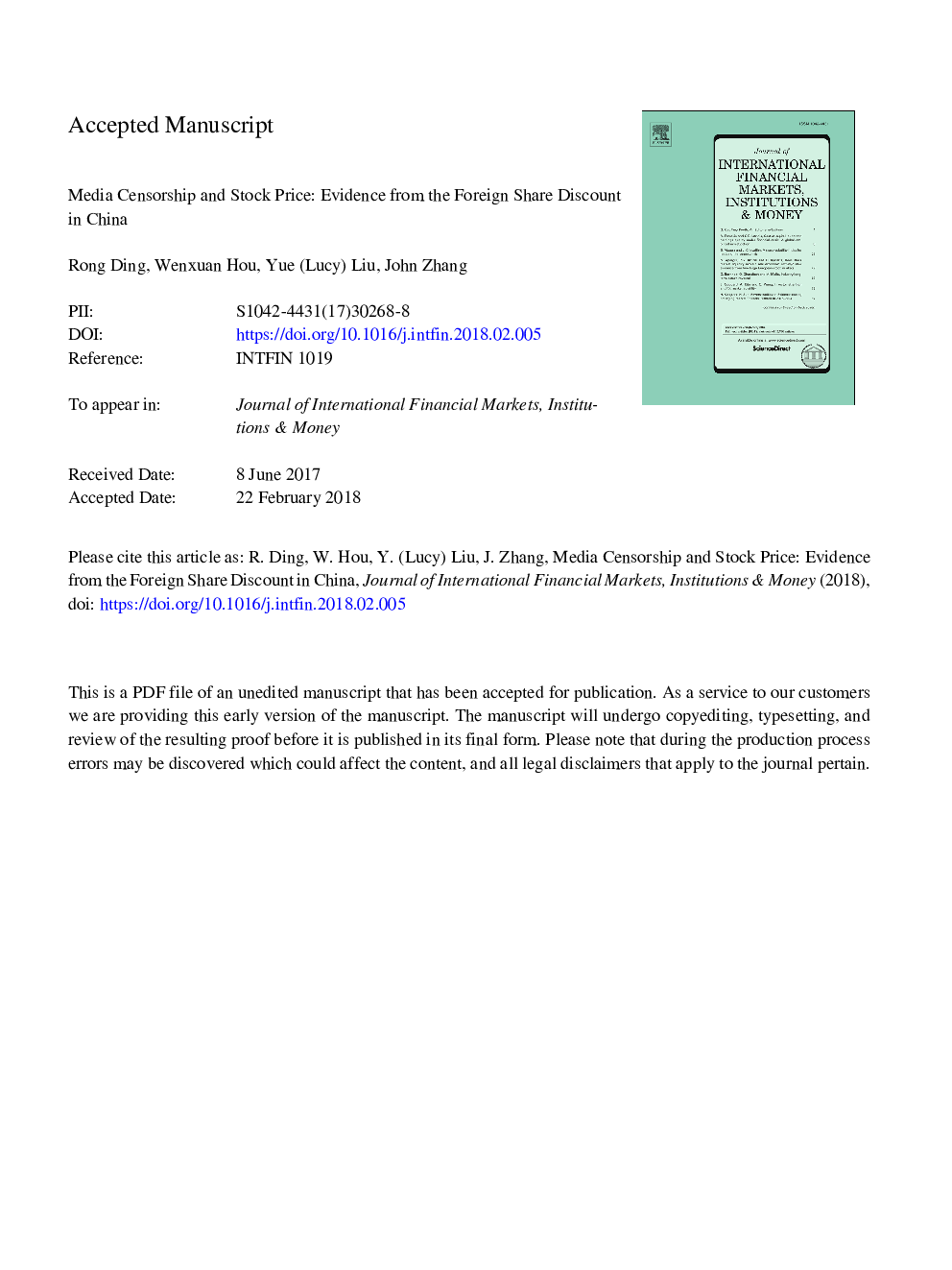| Article ID | Journal | Published Year | Pages | File Type |
|---|---|---|---|---|
| 8942353 | Journal of International Financial Markets, Institutions and Money | 2018 | 60 Pages |
Abstract
This paper studies the price implication of media censorship in the context of the long-standing foreign share discount puzzle in China. We conjecture that the government censors negative news and promotes positive news in Chinese media, leading to the premium on A-shares, which are mainly traded by domestic investors. We find that the ratio of positive to negative news is substantially higher for Chinese newspapers than English newspapers. Such favouritism is found to inflate the price of domestic A-shares and contribute to the discount of foreign B-shares from the same firms. We also provide evidence that B-share investors pay more attention to bad news, while A-share investors pay more attention to good news. Our findings suggest that the news perception distorted by media censorship helps to explain the foreign share discount puzzle and has important implications for international capital flows.
Related Topics
Social Sciences and Humanities
Economics, Econometrics and Finance
Economics and Econometrics
Authors
Rong Ding, Wenxuan Hou, Yue (Lucy) Liu, John Ziyang Zhang,
